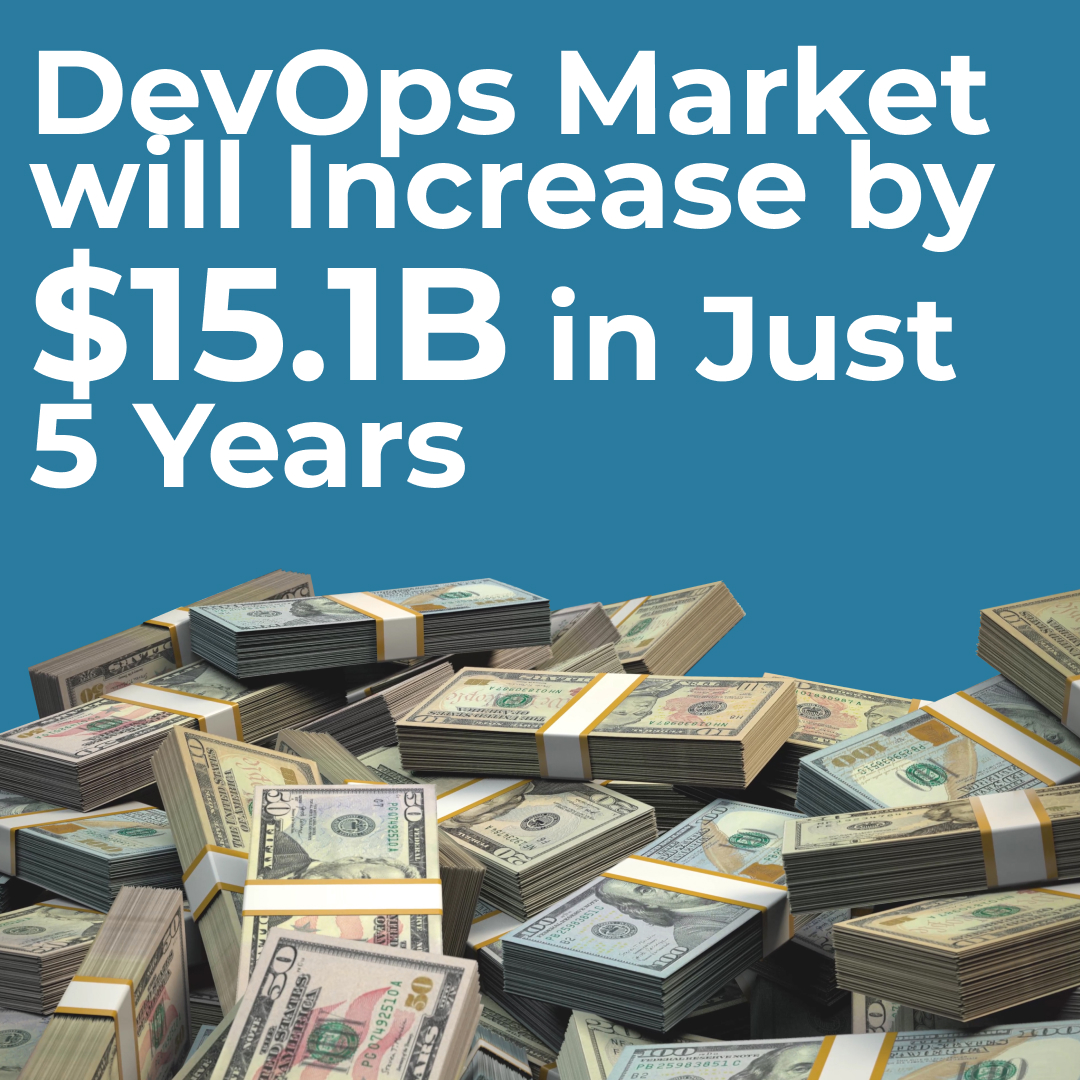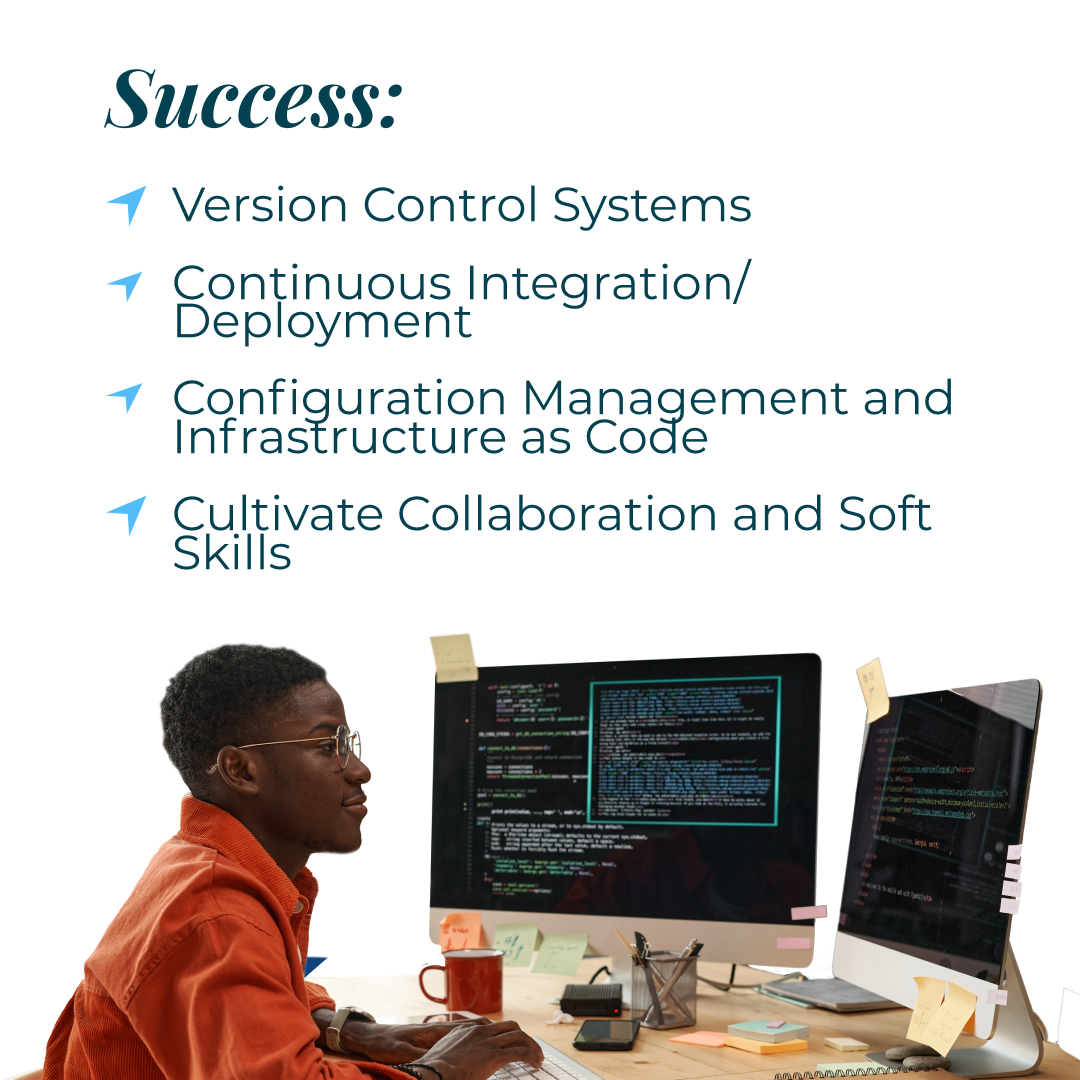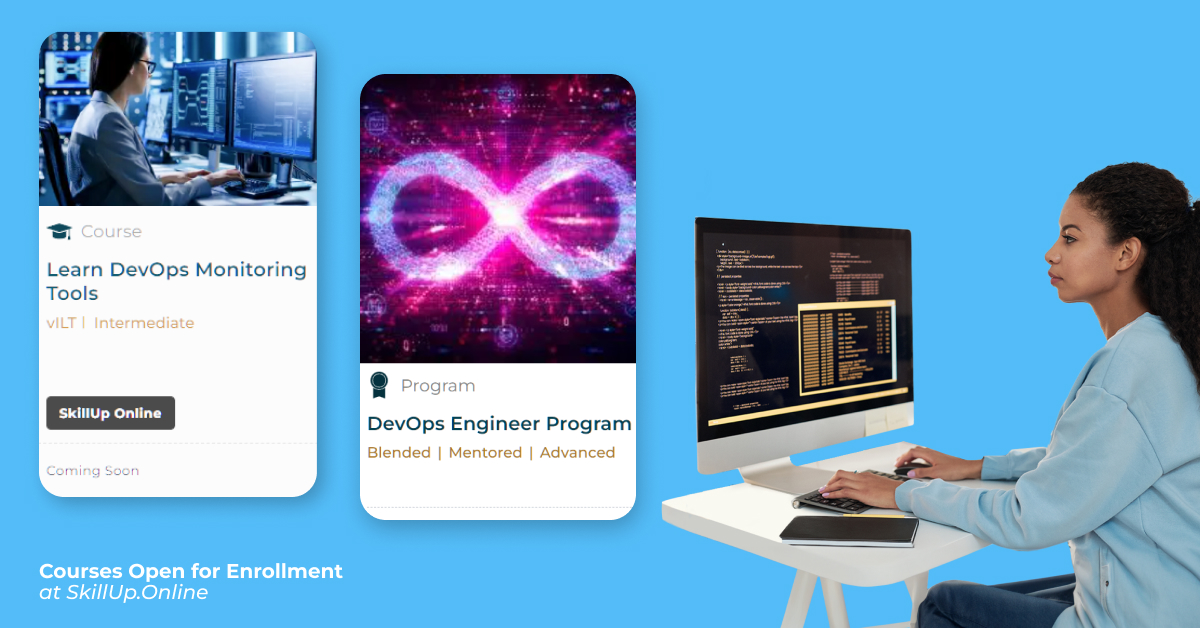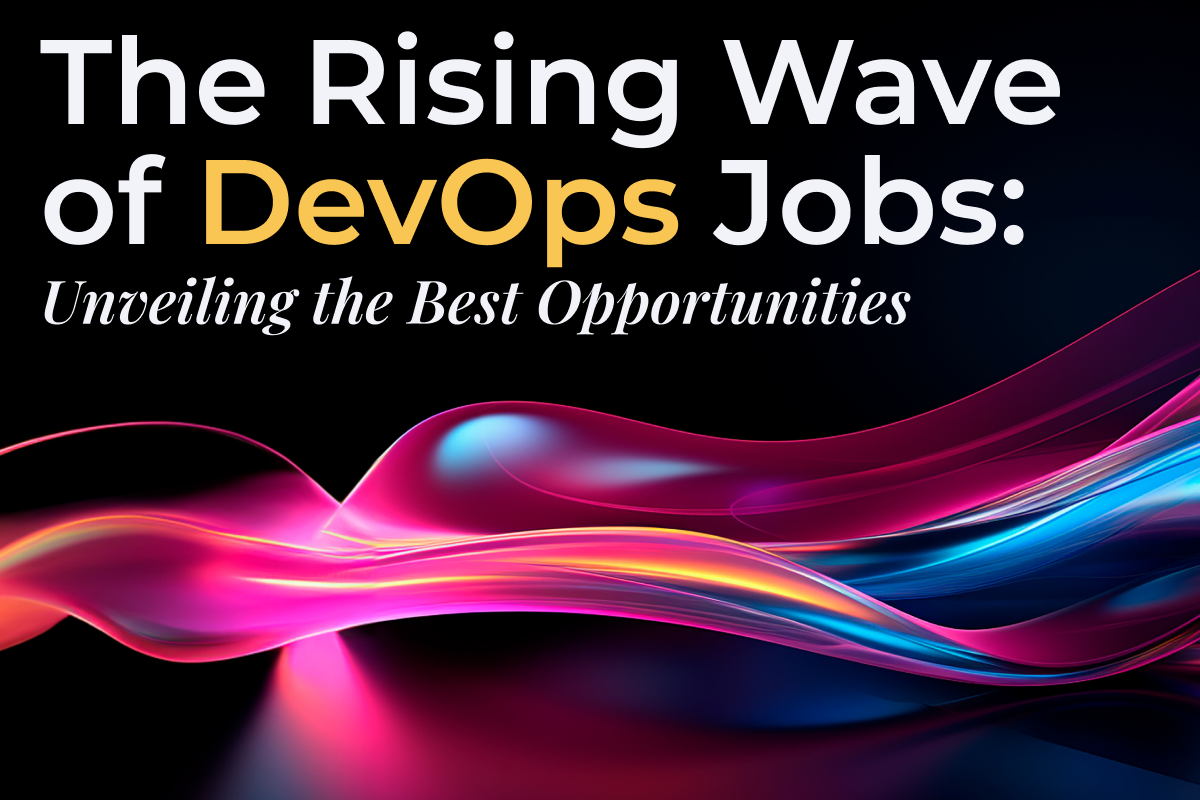The rise of DevOps in the technology landscape has been nothing short of remarkable. As organizations strive to deliver software faster, more reliably, and with increased collaboration, the demand for proficient DevOps engineers has skyrocketed. In fact, leading job search platforms like indeed.com have reported an astounding 75% increase in DevOps job listings, underlining the remarkable career opportunities that await those who are skilled in this domain.
However, you might feel that the transition from cloud to DevOps is a bit daunting, but with the right guidance and resources, the journey can be not only manageable but also highly rewarding. So, whether you’re already well-versed in cloud technologies or are just starting to explore this dynamic field, you can smoothly transition to a successful DevOps engineer. Let’s explore how…
Step 1 – Embrace a New Path in DevOps
Transitioning from a cloud-focused career to DevOps opens a gateway to exciting career prospects. Roles such as DevOps engineer, release manager, site reliability engineer (SRE), and automation architects are just a few examples of what you can look forward to within the DevOps ecosystem to benefit from competitive salaries and abundant opportunities for career advancement. Your ability to architect scalable infrastructures, ensure rapid and reliable software releases, and maintain impeccable system reliability will position you as an indispensable asset within any organization.
Moreover, transitioning to DevOps opens the door to unparalleled career growth. As you immerse yourself in this multidisciplinary field, your skill set will diversify to include knowledge of cloud technologies, development practices, and operational excellence. This fusion of skills will make you a sought-after asset in any organization aiming to stay competitive in today’s fast-paced landscape. But how can you build these DevOps skills? Let’s understand.
Step 2 – Build the Essential Foundations for DevOps
At its core, DevOps is built upon a set of foundational principles that drive collaboration, streamline processes, and empower teams to deliver high-quality software at an unprecedented pace. So, in order to transition your career from cloud to DevOps, it is essential to build a strong foundation of these essential pillars of DevOps based on your understanding of cloud technologies, cloud architectures, provisioning, and deployment models.
What Do You Need for DevOps?
To achieve success in this field, you need to:
- Master Version Control Systems: Version control systems like Git are the bedrock of DevOps, enabling collaborative code management and tracking changes across teams. So, make sure you familiarize yourself with Git workflows, branching strategies, and pull requests. This skill is invaluable for maintaining code integrity and facilitating seamless collaboration—a hallmark of DevOps practices.
- Embrace Continuous Integration and Continuous Deployment (CI/CD): DevOps places a strong emphasis on automation to streamline software delivery. Learn about CI/CD pipelines, where code changes are automatically tested, integrated, and deployed to production. Tools like Jenkins, Travis CI, and CircleCI are essential in building efficient pipelines that reduce manual intervention and accelerate software releases.
- Explore Configuration Management and Infrastructure as Code (IaC): Transitioning to DevOps involves managing infrastructure as code, a concept closely aligned with cloud technologies. Tools like Ansible, Puppet, and Terraform enable you to define and manage infrastructure through code, fostering consistency and scalability while reducing manual configuration efforts.
- Explore Configuration Management and Infrastructure as Code: DevOps professionals must ensure the reliability of systems in production. So, gain expertise in monitoring tools such as Prometheus, Grafana, or Splunk to track system performance and detect anomalies. Also, be aware that understanding incident response practices is equally crucial for mitigating and resolving issues swiftly.
- Cultivate Collaboration and Soft Skills: DevOps thrives on collaboration and effective communication. So, hone your interpersonal skills so you can work seamlessly with cross-functional teams. Remember, demonstrating empathy, adaptability, and teamwork will elevate your ability to drive successful DevOps initiatives within your organization.
Now that you know which essential DevOps skills you need to build, it is also crucial to keep a check of your existing skills and gauge your proficiency in each area. This evaluation will help you work on them to bridge any existing gap. But how can you effectively evaluate this? Let’s have a look.
Step 3 – Assess Your Skills and Bridge the Gaps
To begin your journey as a DevOps engineer, you need to be aware of your existing skillset and have a proactive approach to filling any gaps that might hinder you. You need to understand what companies look for when hiring a DevOps engineer and assess how well you fit those requirements. This phase of self-assessment is not only about recognizing your strengths but also identifying areas that may need further refinement. As you prepare to make this transition, consider this step as your personalized checklist where you evaluate where you currently stand and how should chart your course forward.
Checklist to Evaluate Your Skills
- Cloud Infrastructure Management: Reflect on your experience in deploying, configuring, and managing cloud-based infrastructure. Do you have a deep understanding of infrastructure-as-code (IaC) principles and tools? Rate yourself on a scale of 1 to 5, with 1 being novice and 5 being expert.
- Automation and Scripting: Evaluate your proficiency in scripting languages and infrastructure automation tools. Assess whether you’re comfortable with scripting tasks to automate processes and streamline workflows or not and determine the proficiency level.
- Continuous Integration and Continuous Deployment (CI/CD): Consider your familiarity with automated testing, version control, and automated deployment processes. Analyze how well you understand the principles of CI/CD and their role in achieving faster and more reliable software delivery.
- Monitoring and Logging: Assess your knowledge of monitoring and logging tools. Find out how confident you are in your ability to track application and infrastructure performance, as well as troubleshoot issues effectively.
- Collaboration and Communication: Reflect on your collaboration and communication skills. In a DevOps environment, effective teamwork and cross-functional cooperation are essential. Assess how well you communicate and work with colleagues from different disciplines.
Step 4 – Build Skills Via Online Certifications
To bridge any gaps you’ve identified, take help from online courses, certifications, and resources. A good learning path to become a DevOps engineer can be to opt for certification courses for the skills you need to work upon.
For instance, if you need to learn CI/CD with Jenkins, you can take an online course for that. And you can take similar courses for container orchestration with Kubernetes, containerization with Docker, configure management with Ansible, infrastructure provisioning with Terraform, and designing and implementing Microsoft solutions.
However, if you think you need to work on all the DevOps tools from scratch, then it might be best to enroll for a complete DevOps Online Course designed for DevOps tools and technologies.
Then, once you’ve mastered all the tools, you can look to take a DevOps engineer program that’s been designed specifically to transform you into a DevOps engineer.
Also, it’s highly recommended that you can contribute to open-source projects on Cloudprober, Cloud Operations Sandbox (Alpha), Version Checker for Kubernetes, Istio, etc. This will help you implement your newly learnt skills in real-time projects and will give you something to talk about in your interviews. Plus, you can join DevOps communities to connect with people working as DevOps professionals to enhance your career opportunities.
Step 5 – Apply DevOps Principles to Real-world Scenarios
Following on from that last point, case studies are a great way to understand the potential of DevOps. By studying different journeys, you can glean insights into effective tool adoption, cultural shifts, and the business impact of streamlined processes.
For instance, a case study by Everbridge Xmatters on continuous monitoring explains how automation enables continuous monitoring, detecting anomalies, compliance issues, and security threats. For example, a shoe-selling business preparing for holiday sales, might find that increased sales volume can be detected using a basic monitoring tool. However, a more sophisticated solution might identify that shoes are being sold significantly below production cost, which would indicate a problem. Then, with timely investigation, the operations team might discover what the issue is—for example, combined coupon codes—and an adjustment can be made immediately. This quick root cause analysis showcases the power of automated continuous monitoring.
A Final Word
Hopefully, now you can see that transitioning from cloud DevOps is a rewarding and fulfilling career option. And, as a cloud professional, you can easily use your foundation of cloud technologies to build your DevOps skills. With the help of Online professional courses and programs, you can hone the essential DevOps tools and technologies and begin a successful career in DevOps. So, are you ready to embrace the challenge, invest in your learning, and embark on a journey that will reshape your career?
If you would like to know more about how you can build skills and get started as a DevOps engineer, contact our Learner Support Team at [email protected]. They will be more than happy to guide you on the next steps you can take.
SkillUp Online







